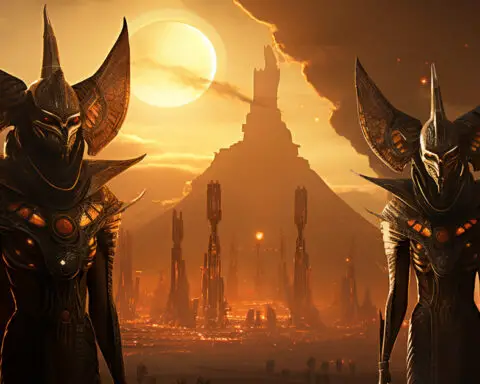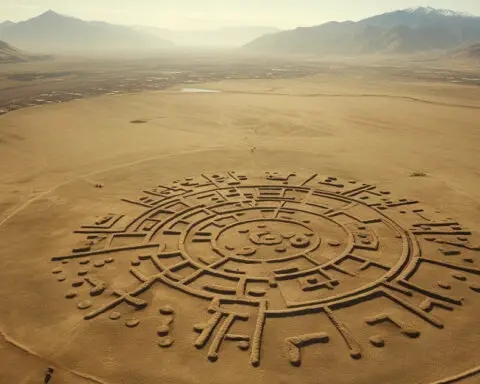Introduction
The mysteries of our ancient past have long captivated human imagination. From the construction of the Great Pyramids to the enigmatic Nazca Lines, there’s no shortage of historical enigmas that continue to baffle researchers and historians. A fascinating question arises when we consider the evidence and biblical clues that suggest the existence of a lost prehistoric civilization—one that may have thrived on Earth long before our recorded history.
Vanishing Footprints of Antiquity
One of the central questions that have intrigued scholars is whether it’s possible to detect the existence of ancient civilizations that date back tens of thousands of years. The answer, as we delve into this topic, appears to be a resounding “no.” This is due to the fact that evidence of such civilizations would have been gradually eroded and destroyed by the relentless passage of time.
The renowned scientist Michael Dennin emphasizes the fact that our current technological civilization is but a brief moment on the geological timescale. Were our civilization to suddenly vanish today, it might leave little to no trace for future generations. This revelation prompts us to reconsider our assumptions about the permanence of human achievements.

Ancient Myths and Legends
Mainstream archaeology tells us that the earliest known civilizations emerged around 3000 BC in the region we now know as modern-day Iraq. However, oral traditions, ancient myths, and surviving historical records from various cultures around the world tell a different story—a story of a time that predates these known civilizations. This was an era when humans purportedly coexisted with divine beings, often referred to as gods.
These stories frequently recount a “before the before,” a time when gods and humans walked the Earth together. In Greek mythology, Hesiod introduced the concept of five ages of man, with the Golden Age representing a period of harmony and coexistence with the gods. Notably, Hesiod regarded this era as historical reality rather than mere myth. Similar notions of cyclical ages can be found in other cultures, such as the Aztecs.
Biblical Clues to Pre-Adamic Civilizations
Interestingly, biblical texts also contain hints of pre-Adamic civilizations. In the Book of Genesis, Chapter 36, there’s a curious genealogy that mentions the reign of kings in the land of Edom before the establishment of an Israelite monarchy. This suggests the existence of advanced civilizations preceding Adam.
Moreover, Enochian literature provides accounts of highly advanced societies, some of which allegedly possessed advanced technologies, including what we would now consider nuclear technology. The cumulative evidence from various traditions and cultures raises the possibility that earlier, advanced civilizations have faded into the mists of history.
A Lost Prehistoric Civilization?
The tantalizing question that lingers is whether multiple advanced civilizations may have risen and fallen on Earth, each eventually succumbing to the sands of time. Giorgio Tsoukalos challenges the mainstream view that gods were mere products of human imagination. He posits that these gods were extraterrestrial beings who imparted knowledge to humanity.
As we delve deeper into the rich tapestry of ancient myths, biblical clues, and intriguing hints from various traditions, the concept of a lost prehistoric civilization becomes more plausible. The enduring stories of gods, advanced knowledge, and pre-Adamic societies persist across cultures and epochs, beckoning us to unravel the mysteries of our distant past.
Video:
Conclusion
The evidence and biblical clues that suggest the existence of a lost prehistoric civilization continue to spark curiosity and intrigue among researchers and history enthusiasts. While concrete evidence may remain elusive, the enduring tales of gods, advanced technology, and pre-Adamic societies in various cultures and sacred texts compel us to explore the possibility that our planet may have hosted multiple advanced civilizations, their legacies slowly fading from the pages of history. As we contemplate these mysteries, we remain ever eager to uncover the secrets of our ancient past.






